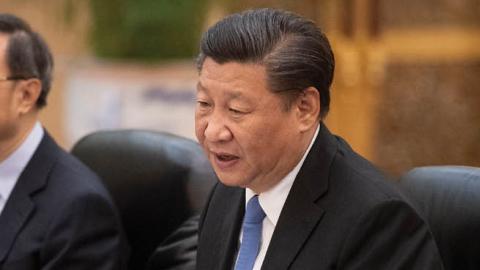Following the assault on the U.S. Capitol last month, the Chinese Communist Party wasted no time in painting the episode as representative of the chaos sown by democracy. It even used this rhetorical sleight of hand to undermine the legitimacy of Hong Kong’s democratic protest movement.
China is just one of a number of authoritarian regimes hoping to seize upon the recent turmoil in U.S. politics to support a self-serving narrative: that dissent breeds vitriol and that democratic governance, which requires dissent, is therefore an inherently unstable, violent form of government. The CCP claims personal freedoms and liberties must be sacrificed in order to achieve what it calls a “harmonious society," and it has used this ideology to justify the subjugation of Hong Kong and numerous other peoples.
But the Hong Kong protests were not a result of a chaotic, self-governing democratic process. Rather, the protests arose precisely because the CCP stripped Hongkongers of any consequential participatory power in the governance of their own city, in violation of the “one country, two systems” political settlement. Lacking political representation or institutional power, Hongkongers were forced to take to the streets to demand the restoration of their rights.
The attack on the Capitol has revealed a troubling extremist undercurrent in U.S. politics. But as the peaceful transfer of power last week showed, American institutions, however, are able to weather such threats because they are laid on a bedrock of fundamental constitutional principles enshrining our civil liberties — the same liberties that China insists are incompatible with peace.
In fact, a society that provides civil liberties for all citizens establishes a common philosophy of justness and fairness and allows individuals to achieve their ambitions through peaceful debate rather than through arms and violence. The better a society can protect civil liberties, the better it can ward off threats to peace. And when violence does erupt, societies grounded in the equal application of the rule of law are best equipped to prevent its recurrence.
Democracy is, of course, imperfect. Our founders recognized this, which is why American democracy is designed with numerous checks on power and prizes transparency. These freedoms permit the Fourth Estate to highlight imperfections and failures if they are so inclined, enabling American society to reevaluate and change course as necessary. Far from being the weakness totalitarians think it to be, this is in fact America’s greatest strength — the source of our ingenuity and resilience.
In contrast, a totalitarian government like the CCP cannot afford to be transparent or tell the truth because it must convince powerless citizens to be content with powerlessness. By maintaining control of China’s traditional media, social media, and even private communications, the government can propagate a self-serving narrative and foster a culture of silence. Instead of working to solve problems and create real peace, the CCP focuses most of its energy on convincing people to stay quiet, allowing daily violence to permeate, unhindered, through society. When citizens realize that they are being treated unfairly, the sense of grievance grows and leads to calls for change. Lacking any incentive for reform or accountability, the CCP can only respond with a crushing repression.
Alongside the breach at Capitol Hill, headlines on Jan. 6 included the arrest of 53 activists in Hong Kong by the Chinese government, the latest additions to a long list of dissidents detained not for violent acts, but for “picking quarrels and provoking trouble.” Those taken into Chinese custody are routinely and systematically disappeared, detained indefinitely, tortured, and will face a kangaroo court that serves as nothing more than the retributive ax of the party. In contrast, the rioters at Capitol Hill who are charged with crimes are assured a litany of rights, including an open, fair trial in the court of an independent judiciary.
While China continues to shovel its ever-growing carnage out of view in the name of a superficial “harmony,” the U.S. Congress rebuffed violence and returned, together, to carry out their duties as representatives of the people. American institutions still have the potential to be made better because of the trials they have faced, not in spite of them. As long as China remains under the totalitarian rule of the CCP, there is no such option for course correction — and no hope of freedom for the Chinese people.
Read in The Washington Examiner















